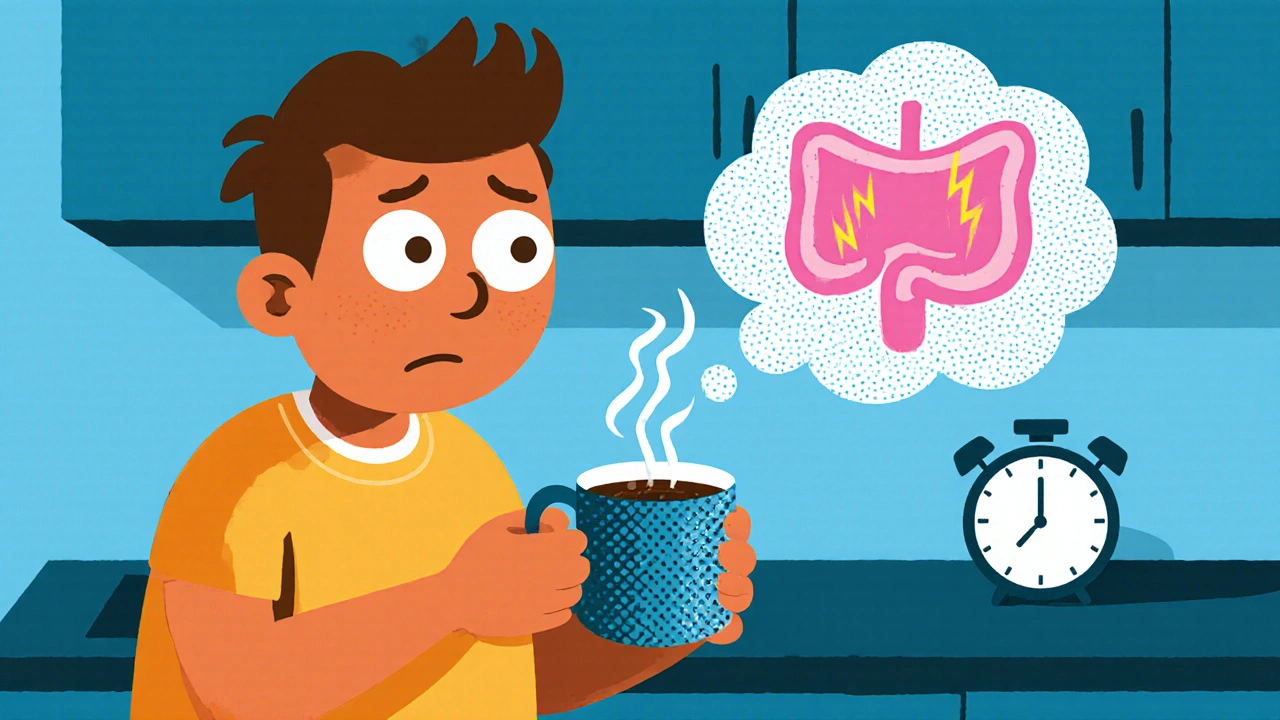Caffeine and Bladder Spasms: Understanding the Link
Explore how caffeine can trigger bladder spasms, who is most at risk, and practical steps to manage symptoms while still enjoying your favorite drinks.
Continue ReadingWhen you drink coffee or grab an energy drink, you’re consuming caffeine, a natural stimulant found in coffee beans, tea leaves, and cacao. Also known as 1,3,7-trimethylxanthine, it’s the most widely used psychoactive substance on the planet. Unlike prescription drugs, you don’t need a script to get it—but that doesn’t mean it’s harmless. Caffeine works by blocking adenosine, a chemical that tells your brain it’s time to rest. That’s why you feel alert, focused, and sometimes jittery. But what happens when caffeine meets your heart medication, antidepressants, or even over-the-counter cold pills?
Many people don’t realize how deeply caffeine, a central nervous system stimulant interacts with other drugs. For example, if you’re taking amitriptyline for depression or anxiety, caffeine can make side effects like dry mouth, fast heartbeat, or trouble sleeping worse. If you’re on methadone for opioid use disorder, caffeine might push your heart rhythm into dangerous territory by prolonging the QT interval. Even common OTC cold medicines with dextromethorphan can become risky when mixed with caffeine, raising the chance of serotonin syndrome. And if you’re managing diabetes, caffeine can cause your blood sugar to spike or drop unpredictably—especially if you’re on insulin or metformin. It’s not just about how much you drink; it’s about what else you’re taking.
Then there’s sleep, a biological process critical for recovery, memory, and hormone balance. Caffeine’s half-life is about five hours, meaning if you drink a cup at 3 p.m., half of it is still in your system at 8 p.m. That’s why people who swear they "can sleep anytime" often wake up restless, even if they fall asleep fast. Poor sleep then feeds back into higher caffeine use, creating a cycle that’s hard to break. And if you’re pregnant, dealing with gout, or managing IBS, caffeine can make symptoms worse—tightening blood vessels, raising uric acid, or triggering stomach cramps.
You’ll find posts here that dig into these exact overlaps: how caffeine plays with antidepressants, how it messes with blood sugar, why it’s not just a harmless pick-me-up, and what safer alternatives exist. Whether you’re trying to cut back, manage side effects, or just understand why your heart races after lunch, this collection gives you real, no-fluff answers—not guesses. No marketing. No hype. Just what actually happens when caffeine meets your body and your meds.

Explore how caffeine can trigger bladder spasms, who is most at risk, and practical steps to manage symptoms while still enjoying your favorite drinks.
Continue Reading